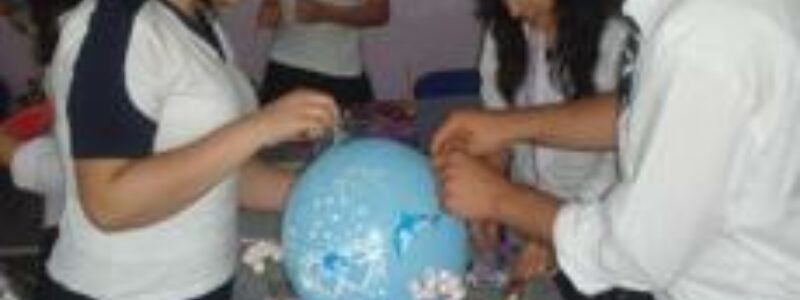Kindred (Family Histories)

Project Name: Kindred (Family Histories)
Age Level:
5-11 (Primary)
Subject Areas:
Social Studies, English & Language Arts
Summary: Students are looking at "Change Over Time: American Culture from 1912 – 2012" [COMMON CORE STATE STANDARDS ALIGNED - pdf available]
Kindred (Family Histories) Project
 Download a template (.pdf) showing how the Kindred (Family Histories) project is aligned to the Common Core Standards
Download a template (.pdf) showing how the Kindred (Family Histories) project is aligned to the Common Core Standards
Kindred Project Description Page
Curriculum Areas: Social Studies & Language Arts
Grade/Age Level: Grade 5
Teacher Goals
For students to develop and share an understanding of how American Culture has changed from 1912 – 2012 through researching, interviewing, writing and performing. Students will be able to identify element of cultural changes that are common to other countries and cultures over time.
Student Goals
- To understand that all families have stories with common characteristics and special moments
- To develop an understanding of what makes a good interview question
- To practice interviewing techniques and note-taking
- To develop research skills using a variety of source material
- To explore different forms of writing that reflect gathered information
- To write and share family stories and ways of living in both narrative and expository forms
- To have the opportunity to read and appreciate family stories from students in many other parts of the world
Alignment to Common Core State Standards
- RI 5.1 Quote accurately from a text when explaining what the text says explicitly and when drawing inferences from the text.
- RI 5.2 Determine two or more main ideas of a text and explain how they are supported by key details; summarize the text.
- RI 5.4 Determine the meaning of general academic and domain-specific words and phrases in a text relevant to a grade 5 topic or subject area.
- RI 5.5 Compare and contrast the overall structure (e.g., chronology, comparison, cause/effect, problem/solution) of events, ideas, concepts, or information in two or more texts.
- RI 5.6 Analyze multiple accounts of the same event or topic, noting important similarities and differences in the point of view they represent.
- RI 5.7 Draw on information from multiple print or digital sources, demonstrating the ability to locate an answer to a question quickly or to solve a problem efficiently.
- RI 5.9 Integrate information from several texts on the same topic in order to write or speak about the subject knowledgeably.
-
W 5.1 Write opinion pieces on topics or texts, supporting a point of view with reasons and information.
a. Introduce a topic or text clearly, state an opinion, and create an organizational structure in which ideas are logically grouped to support the writer’s purpose.
b. Provide logically ordered reasons that are supported by facts and details.
c. Link opinion and reasons using words, phrases, and clauses (e.g., consequently, specifically).
d. Provide a concluding statement or section related to the opinion presented. -
W 5.2 Write informative/explanatory texts to examine a topic and convey ideas and information clearly.
a. Introduce a topic clearly, provide a general observation and focus, and group related information logically; include formatting (e.g., headings), illustrations, and multimedia when useful to aiding comprehension.
b. Develop the topic with facts, definitions, concrete details, quotations, or other information and examples related to the topic.
c. Link ideas within and across categories of information using words, phrases, and clauses (e.g., in contrast, especially).
d. Use precise language and domain-specific vocabulary to inform about or explain the topic.
e. Provide a concluding statement or section related to the information or explanation presented. inform about or explain the topic.
Knowledge acquired by students
- New knowledge of the many ways families live across time and place
- Greater understandings of how cultural and world events shape the lives of families
- Stronger written language skills
Timetable
We would have a seven day immersion for this project, with the goal of having writing and multi-media presentations ready to share on the Kindred Forum afterwards and ongoing.
Specific lessons: Introduction
I will present this project to my students as part of our study on Time, e.g. looking back in time…how big time is….how to understand time in relation to grandparents, family events, historical events. This project would help the students understand that children everywhere have the same sense of time being very deep and difficult to grasp, but that family stories bring time into manageable concepts of experience and memory.
Productivity of Work
- Students would research in teams as well as independently as they investigate online as well as textbook materials
- Students will work in small writing teams and partners for peer review, question-development, and encouragement.
- Individual teachers will be in charge of students.
At this point, I see this as taking place after the seven-day immersion is over and we will be able to have ongoing sharing over several weeks with a set schedule.
Assessment of student work
Since this is basically a writing and research project, one in which students are developing strong writing skills and eventually sharing their work with others. This would require individual goals as well as class goals for authentic as well as grammatically correct language for their age.
- Introductory stage: Because students will have already written narrative and expository pieces for class, these can be used to assess areas of developmental need in terms of grammar and sentence structure. This can then lead to each student having a small list of skills they will practice as they write, peer review and finalize copies of letters to be shared. I would also ask students to free-write, at the beginning of this project, some of the ideas of themselves and their families that they would like to share. This could be a benchmark to which they refer as they continue to write and share.
- Implementation stage: I’m not sure, but I’m not worried. Writing skills develop with consistence practice and ongoing feedback. Things will change as the students send and receive letters. Students will use practice worksheets to help with grammar mistakes that need additional practice, spelling work will be part of each week’s lessons, and time in class and outside of class will be devoted to writing. Small groups will meet for peer review as well as teacher check-ins. I think keeping track of student products as well as the developmental quality of their writing will be part of the course work as usual. This would be the time that I would give a writing rubric. I would not do this at the beginning of the project. I want students to draft freely, secure in the knowledge that guidelines for re-thinking, revising and re-writing will come. For those students who struggle to write without a strict purpose and guidelines, there will be guidelines for this, too
- Conclusion stage:Students will complete self-evaluations of their developing writing skills when compared to their initial efforts. They will write to themselves and to their partners about their work, their ideas and their skill development. I will do the same.
Skill Development Areas
- Computer skills
- Research skills
- English language skills
- Critique skills
- Social skills
- Netiquette Skills






